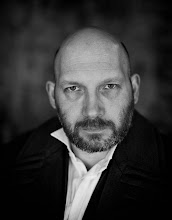 I find writing difficult. There, I’ve said it.
I find writing difficult. There, I’ve said it.Don’t get me wrong, I love to write – there is nothing in the world quite like it. I even like to read my own writing (not in an egotistical way, you understand, but sometimes it gives me a thrill to think ‘I wrote that’) and I get a real thrill out of the editorial process. I love to prune and shape my prose, peering into it for inconsistencies, repetition and the ever popular lapse of logic.
I love to create and explore new worlds – to grub around in them and discover exactly what they have to offer – and I love to follow the characters that I’ve created and see where they go next and what will happen to them.
But sometimes it’s just so damned hard.
Over the years I have read lots of books on writing – some good, some bad, some indifferent and some just bloody awful – in an attempt to make the process easier. Sometimes it works, and once in a while I manage to pick up a nugget of wisdom that helps the process and becomes part of my own method. More often, though I come away with a sense that I’m still missing something, that tiny vital piece of information that will turn me from a tortured hack into a more prolific and substantially less tortured hack.
Of course, this is nothing more than a pipe dream. I know beyond certainty that no such piece of information exists and that the only sure and certain way to learn more about the process of writing is to continue to write. And so I do… I write, I study structure and method, I apply the lessons I have learned (no matter how small) to the stories that I write. Most of all, I read. There are many, many writers I admire and I try to learn from them.
My difficulties arise, I have no doubt, mostly from the way I choose to write (or the writing method that has chosen me, I’m never sure which). I rarely plan in any great detail, I normally have at least some idea of the characters, the situation and where I want the story to go: but I very rarely have everything set down in stone before I begin to write. What’s worse is that when I do plan a story I tend to lose interest in it. It’s kinda a Chester Gould thing – Gould rarely planned too far ahead, working on the principle that if he could surprise himself then he could surprise the reader, too. (Mind you, it’s an elastic word and an elastic term – surprise can be relative, a turn of phrase or a description can surprise both writer and reader – and doesn’t necessarily mean a massive plot twist or a stunning turn of events).
Stephen King once spoke about how we ‘unearth’ stories and that is something I tend to agree with. I think that, as writers, we get the stories we deserve – the characters we create are tiny fragments of our own psyches given some ethereal form on the page, they mirror us in some way, even if that mirror is an utterly distorted one.
Still, nothing worthwhile is ever easy (or so they tell me) and I think that any writer worth his or her salt will occasionally struggle with their tales and, very often, the struggle leads to revelation – those wonderful moments when you cease to be a tourist in your own fictional world and instead become an integral part of it.
And that’s when it’s really worth it.


No comments:
Post a Comment